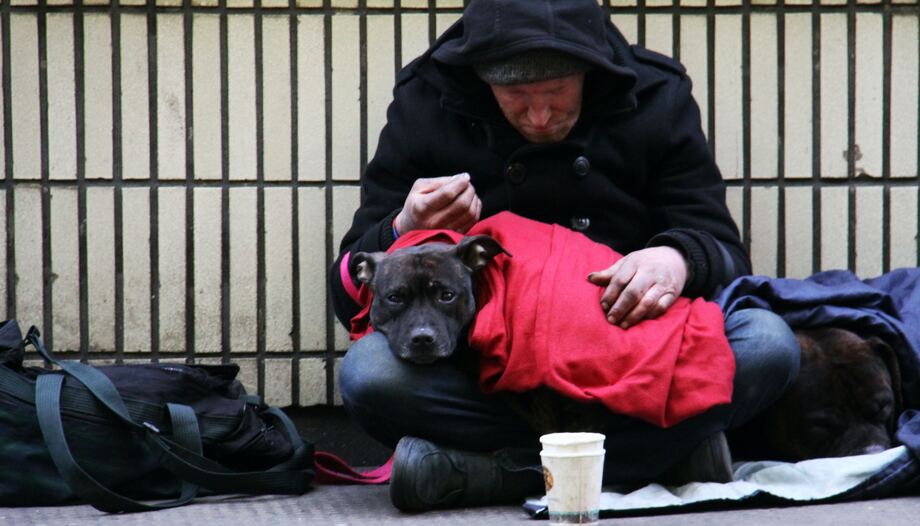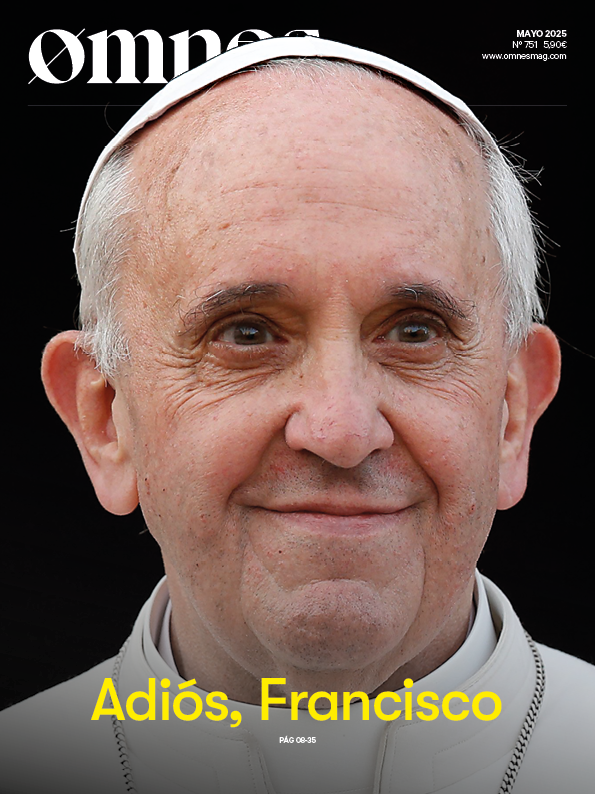The Catholic Church has always been concerned about people living in poverty. For this reason, every year it celebrates the World Day of the Poor, which in 2023 will be commemorated on November 19. For this occasion, Pope Francis chose as his motto "Do not turn away your face from the poor", expressed in the message published on June 13 for this day.
The Holy Father warned that "we are living in a historical moment that does not favor attention to the poorest. The current pace of life, "the call to well-being," leads to suffering being put "in parentheses." For the digital generation, the Pope said, "the poor become images that can be moving for a few moments, but when they meet in the flesh and blood in the street, then annoyance and marginalization intervene".
But the reality is that the poor are not just an image. The World Population Review website estimates that some 700 million people live in poverty. According to the English sociological researcher Benjamin Rowntree, a person is in this situation when the total disposable income does not satisfy the minimum necessary for subsistence.
Poverty figures
It is difficult to find up-to-date and reliable data on the poverty rate in countries. Many states make up the data, in order to pretend that the rate is much lower than it really is. Despite this, there are platforms and organizations that strive to provide reliable figures to make the situation known.
According to "World Population Review", 76.8 % of the population in Equatorial Guinea does not have sufficient resources to cover their basic needs. However, these data are from 2006. Close to that number is the rate of South Sudan, which in 2019 had 76.4 % of population in poverty.
While it is true that millions of people do not have enough to live on, the "World Bank" says that poverty is decreasing. But it is also true that 85 % of the population lives on less than $30 a day. To get a more or less global idea, this is the number of people living in extreme poverty in some countries:
-Chile: 143,277
-Spain: 374,152
-United States: 3.28 million
-Mexico: 4 million
-Philippines: 5.38 million
-Brazil: 11.37 million
-India: 136.81 million
(Source: World Bank Data)
Initiatives in the Church
In the face of all this, what is the Catholic Church doing? Pope Francis is an advocate for the poor who has spoken out many times. In 2013 he mentioned that "among our tasks, as witnesses to the love of Christ, is to give voice to the cry of the poor."
On the other hand, the Holy Father has also stressed the need for action. On the First World Day of the Poor, November 19, 2017, Francis chose as his motto: "Let us love not in word but in deed."
The Catholic Church, aware that actions matter, has a multitude of initiatives to address poverty. One of them, perhaps the best known, is "Caritas". This organization is "a service to the community". As its own website states, "Caritas" "responds to disasters, promotes integral human development" and seeks to end poverty and conflict.
Among the various projects of "Caritas" around the world are assistance in areas damaged by natural disasters and war; the distribution of food, medical care around the world; the reception of migrants; and the promotion of programs for the development of just systems to escape poverty.
Another initiative within the Church that works on behalf of people in need is the "The Church in Need.Community of Sant' Egidio". This international movement is made up of "men and women of different ages and backgrounds who are united by a bond of fraternity based on listening to the Gospel and working voluntarily and freely for the poor and for peace". The main action of this community for the poor is the accompaniment and school assistance to children, although they also work to welcome other groups in need, such as the elderly, prisoners and the sick.
Less well known, but of great value, is "Christ in the city"The spirit of this association is to train young missionaries who work in ministry to the poor, bringing friendship, faith and help to the homeless. The spirit of this association is to train young missionaries who work in ministry with the poor, bringing friendship, faith and help to the homeless.
The Pope and people living in poverty
It is well known that Francis personally promotes several initiatives to help people who lack the necessary resources. The Pope organizes several times a year lunches with poor people at the Vatican. The Holy Father receives thousands of people in the Paul VI Hall and this November 19 he has sent out the invitation again.
Francis has also asked that the Vatican health center extend its hours between November 13 and 18. During those days, on the occasion of the World Day of the Poor, health personnel attended to the poor free of charge. The Zenit news agency reports that general and specialized medical examinations, vaccinations and medications were offered. In addition, the Dicastery for Evangelization has been responsible for paying the bills of some families with minimal incomes.
In addition, the Apostolic Almshouse has showers open every day (except on days of general audiences or large celebrations) for those in need. The poor who come receive clean underwear, personal hygiene products and a towel. In addition to the showers, a free hairdressing salon is open every Monday from nine in the morning to three in the afternoon.
All these initiatives have a common goal, which is to welcome people who are in need of resources. Thus, little by little, the desire expressed by Pope Francis in 2020 is being fulfilled: "The silent cry of so many poor people must find the people of God on the front line, always and everywhere, to give them a voice, defend them and stand in solidarity with them in the face of so much hypocrisy and so many unfulfilled promises, and invite them to participate in the life of the community."








